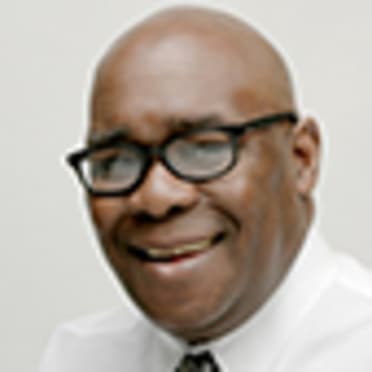NEW YORK -- The Hall of Fame has 37 Negro Leaguers enshrined in Cooperstown, and at least in part, they can thank Ted Williams for it.
The date was July 25, 1966. Williams entered the Hall of Fame that day and made a speech that still resonates around the baseball world. He used his induction speech as an opportunity to speak on behalf of Negro League players. He felt that stars like Satchel Paige and Josh Gibson had largely been overlooked and should be in Cooperstown. Williams knew about their talents, as he competed against Negro Leaguers during barnstorming games starting in the early '40s, when Major League Baseball was still segregated.
“I hope that someday, the names of Satchel Paige and Josh Gibson can … be added to the symbol of the great Negro League players that are not here only because they were not given a chance,” Williams told the crowd that day.
It wasn’t the first time Williams had championed the cause of Negro League players. During the peak of his playing career with the Red Sox, Williams was one of the first white players who called for integration in the Majors, which didn’t happen until 1947, when Jackie Robinson broke the color barrier with the Dodgers.
“I’m one who always believes that great players appreciate great players,” said Bob Kendrick, president of the Negro League Baseball Museum. “The only way you can judge how good you are is playing with and against the best. I don’t think it was out of the ordinary to have a great Major Leaguer to have appreciation for the talent of those great Negro League players. Williams was bold enough to use his Hall of Fame platform to bring it to light.”
Williams, who retired as a player after the 1960 season, told Bob Costas in the early '90s that speaking up for Negro League players was one of his proudest moments in baseball.
“No one encouraged me. I thought this thing alone,” Williams said. “I’ve seen Satchel Paige. I’ve seen Josh Gibson. I heard about Buck Leonard. I heard about some of the other great black athletes. It just came out that [Hall of Fame] day … [and I thought about] the great players of the past. … Only because of their color, [they] didn’t have a chance to play in the big leagues.”
In 1969, the Baseball Writers' Association of America formed a committee to push for Negro Leaguers to be included in the Hall of Fame, but the Hall was reluctant to honor those players in exactly the same way it did MLB players. Bowie Kuhn, who became MLB Commissioner that same year, engaged the Hall’s Board of Directors, which created a 10-man panel to elect one Negro League player per year, starting with Paige in '71. But the plaques for Negro League players would be separate from those of the already enshrined players. This plan was met with great criticism in the media. Finally, just a month before Paige was to be inducted, the Hall relented and agreed that Paige -- and all subsequently elected Negro League players -- would be given full membership in the Hall.
“I am the proudest man on the earth today, and my wife and sister and sister‐in‐law and my son all feel the same,” Paige said. “It's a wonderful day, and one man who appreciates it is Leroy Satchel Paige. Since I've been here, I've heard myself called some very nice names and can remember when some of the men in there called me some baaad names, when [I] used to pitch against them.”
Shortly after Paige’s induction, the rule limiting induction to one Negro League player per year was lifted, and Paige was soon joined by Gibson and Leonard in 1972, Monte Irvin in '73, Cool Papa Bell in '74 and so on. Today, there are 37 people associated with the Negro Leagues in the Hall of Fame.
Williams’ daughter, Claudia, wasn’t born when her father played baseball or made his famous speech in Cooperstown, but one could tell by the sound of her voice that she is particularly proud of this particular moment of her father’s life.
“The thing I’m most proud of is what he did for civil rights, but also what he did for cancer research,” Claudia said by telephone. “I learned what a great baseball player he was. I didn’t appreciate him as a baseball player, but I appreciated him for what he did for people, how generous he was and what he stood for that was right. I learned about him in a different way. That is the reason I think Ted Williams is great.”
